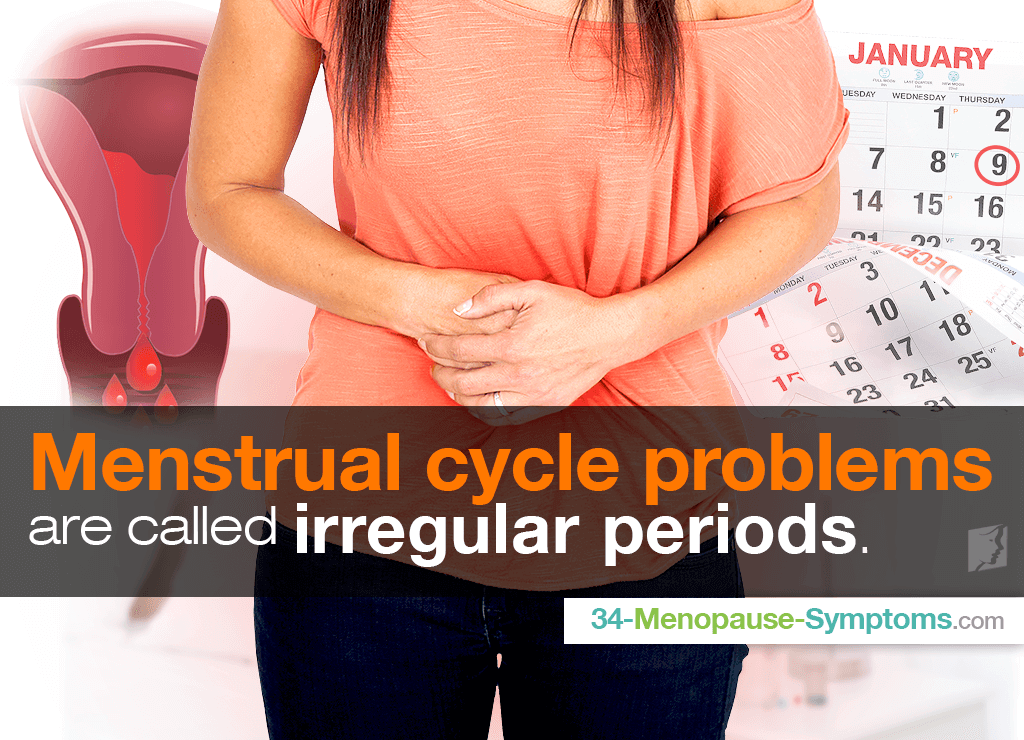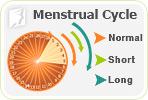Menstrual cycles can naturally fluctuate from month to month, and many women approaching menopause may notice differences in their monthly periods. However, various period problems - such as irregular periods, spotting, cramping, and heavy flow - can subside with the right treatment and lifestyle changes.
Continue reading to learn more about menstrual cycle problems, including what causes them and how to handle them, to take initiative with improving reproductive health once and for all.
What Are Menstrual Cycle Problems?
Menstrual cycle problems include any issues women may experience that is abnormal for them, including spotting between periods, decapitating symptoms (excessive bleeding, cramping, pain, etc.), and more. In general, menstrual period problems are called irregular periods.
Normal menstrual cycles range from 21 - 35 days, and usually menstruation occurs around the same time every month. However, as aforementioned, there may be cycles in which a woman experiences abnormalities, such as skipping a period, extremely light or heavy flow, and more.
Keeping a record of when your period begins and ends as well as any unusual symptoms or characteristics can allow you to see if you have menstruation problems.
What Causes Menstrual Cycle Problems?
Menstrual cycle irregularities can be caused by physical or environmental circumstances. For instance, medications - such as birth control - can induce menstrual period problems. Additionally, psychological conditions like stress, anxiety, or depression can negatively impact hormonal balance and cause irregular periods.
Also, as women go between significant reproductive life stages, it is common for them to experience irregular periods. This is especially true of the menopausal transition, in which reproductive abilities start to wind down and, as such, ovarian hormonal production drastically fluctuates, thus deregulating cycles. It is not uncommon for menopausal women to experience more sporadic periods with a heavier or lighter flow.
Handling Menstrual Cycle Problems
It is common for women to suffer from period problems throughout their lives. Luckily, there are some easy and quick management tips.
For starters, carry around extra sanitary items, like tampons, pads, and panty liners, in your everyday purses and bags if you are worried about getting your period unexpectedly and not having protection. Also, keep an extra change of clothes and undergarments in places you frequent - such as work - in case you need to change unexpectedly.
However, for women passing through the menopausal transition, the best way to manage menstrual cycle problems is by treating the underlying cause, hormonal imbalance. This can be done through a variety of irregular period treatments, which include optimizing your diet, partaking in regular exercise, and taking alternative medicine, like the hormone-balancing supplement Macafem.
It is important to note that irregular periods can be related to an underlying medical condition, like polycystic ovary syndrome (PCOS) or endometriosis, especially if you have heavy bleeding or spotting between periods. If you have symptoms other than an irregular period, or feel like you have an underlying condition that needs to be treated, you should consult your medical professional.
Sources
- Mayo Clinic. (2016). Menstrual cycle: What's normal, what's not. Retrieved October 19, 2018, from https://www.mayoclinic.org/healthy-lifestyle/womens-health/in-depth/menstrual-cycle/art-20047186




